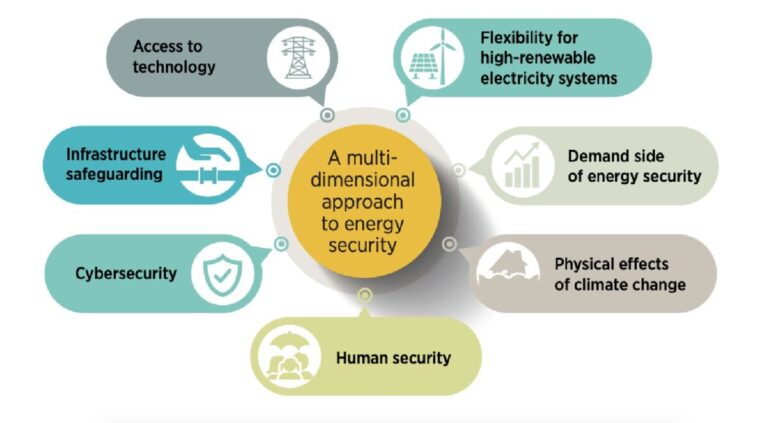A new report from the International Renewable Energy Agency (IRENA) examines the transformation of the global energy system and its implications for energy security. It tells policymakers that energy security in systems based on renewables will require multi-dimensional thinking.
A new IRENA report proposes a multi-dimensional approach to energy security, in line with the renewable-based transformation of the global energy system.
The “Geopolitics of energy transformation: energy securityThe report advises policymakers not to convert fossil fuel-era thinking into a system based on renewable energy sources. It says this could lead to ‘significant mistakes and ill-considered investments’.
“This is especially critical as governments make significant investments in infrastructure for systems that are increasingly electrified, digitalized and decentralized,” said IRENA Director General Francesco La Camera. “The report places the well-being of people and the planet at the center of the evolving energy security story. Ultimately, it recognizes that addressing energy security is as much a political as a technical undertaking.”
IRENA’s multi-dimensional approach to energy security spans technologies, value chains and societies. It examines demand response, flexibility, ecosystems and human security as prerequisites for robust energy systems.
The agency predicts that technology, rather than fuel, will play a dominant role in systems dominated by renewables. It says this is why supply chain resilience needs to be increased.
“Technology supply chains will be exposed to geopolitical disruptions and uncertainties, and their exposure will be magnified by the complex web of connections,” the report said. “Given the need to decarbonize the global economy and the critical role of energy for industrialization and development in the Global South, resilience is an indispensable part of energy security frameworks.”
Traditional threats to energy systems, such as physical attacks on infrastructure and disruptions due to conflict or strategic manipulation, will remain critical concerns for energy security, but will be accompanied by the impacts of climate change and extreme weather impacts, IRENA says. These must become an integral part of energy security considerations, including infrastructure, trade and demand response measures, the report explains, adding that cybersecurity will also become increasingly important in electrified and digitalized systems.
Yana Popkostova, one of the authors of the report, told us pv magazine that decarbonization and digitalization of the energy system will fundamentally change political alliances and dependency dynamics, and promote a radical reform of the conventional geopolitics of energy.
“The report highlights the central role of governments in proactively shaping national and regional energy systems to mitigate geopolitical disruptions and ensure energy security and equity on the path to net zero,” she added.
IRENA says governments must carefully assess strategic assets in the evolving energy system, address critical data gaps, increase transparency between established and emerging trade routes, and establish robust governance and security frameworks to detect threats to energy systems during the transition phase and limit.
This content is copyrighted and may not be reused. If you would like to collaborate with us and reuse some of our content, please contact: editors@pv-magazine.com.


